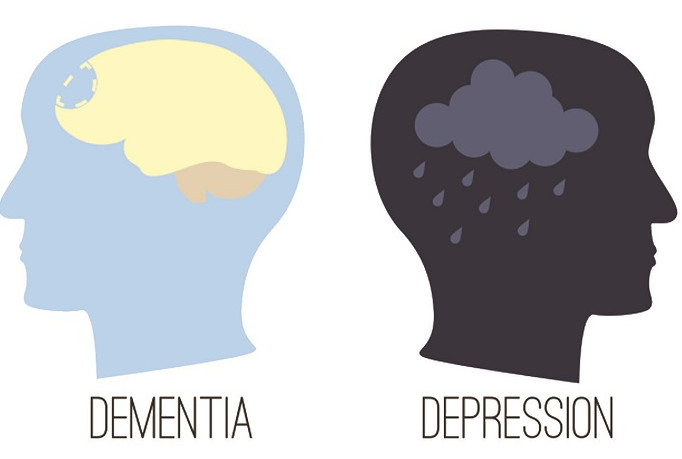Does depression cause dementia + video
New research, published in JAMA Neurology, provides significant insights into the relationship between depression and dementia. A collaborative effort between experts at the University of Pennsylvania and Aarhus University in Denmark, the study analyzed data from over one million individuals spanning nearly four decades. The findings illuminate a compelling link between depression and an increased risk of dementia later in life, emphasizing the importance of addressing depressive symptoms for long-term brain health.
Lifelong Depression May Increase Risk of Dementia :
Examining the Long-Term Impact
The comprehensive study drew upon health data from 1.4 million Danish citizens, utilizing the rich database of the Danish National Health Register. Of the approximately 246,500 individuals diagnosed with depression between 1980 and 2018, over 14,000 later developed dementia. To provide context, data from around 1.2 million depression-free individuals were also examined, with nearly 39,000 from this group eventually being diagnosed with dementia. Both groups had an average age of around 50, with a majority being women.

A Clear Association
The research underscores a strong correlation between prior depression diagnosis and a 2.41 times higher likelihood of dementia development later in life. Importantly, this association held true regardless of when in adulthood depression was diagnosed, spanning early, middle, or late stages. Notably, around two-thirds of those diagnosed with depression experienced it before the age of 60, emphasizing the need for proactive healthcare discussions.
Gender Disparities and Hospitalizations
Gender-based analyses revealed that men faced a threefold increased risk of dementia following depression, while women exhibited a 2.2-fold increase. Additionally, the study discovered a concerning trend – individuals with multiple inpatient hospitalizations for depression were at an escalated risk of developing dementia in the future, with the risk compounding after each subsequent hospital stay.
Treatment Insights
Interestingly, the study found that receiving an antidepressant prescription within six months of a depression diagnosis did not influence the likelihood of later dementia diagnosis. While this suggests that antidepressants alone might not impact dementia risk, there is evidence hinting that combined treatment with behavioral therapy and antidepressants could offer potential risk reduction.
Unraveling the Connection
The exact mechanism underlying the link between depression and dementia remains a subject of ongoing exploration. It is proposed that the physiological toll of depression, particularly on heart health, may indirectly affect brain health. Associations with increased vascular disease and elevated production of brain steroids related to inflammation are hypothesized culprits.
Implications and Prioritizing Mental Health
With approximately 20 million American adults affected by depression and five million by dementia, the significance of this research is substantial. Addressing depressive symptoms not only improves immediate mental well-being but might also contribute to reducing the risk of dementia in the future. Experts highlight the need for individuals experiencing depression to prioritize managing their symptoms in conjunction with seeking medical guidance.
In conclusion, this comprehensive study provides crucial insights into the enduring connection between depression and dementia. While further research is needed to fully understand the underlying mechanisms, the findings underscore the importance of addressing mental health concerns at all stages of adulthood for a healthier cognitive future.


